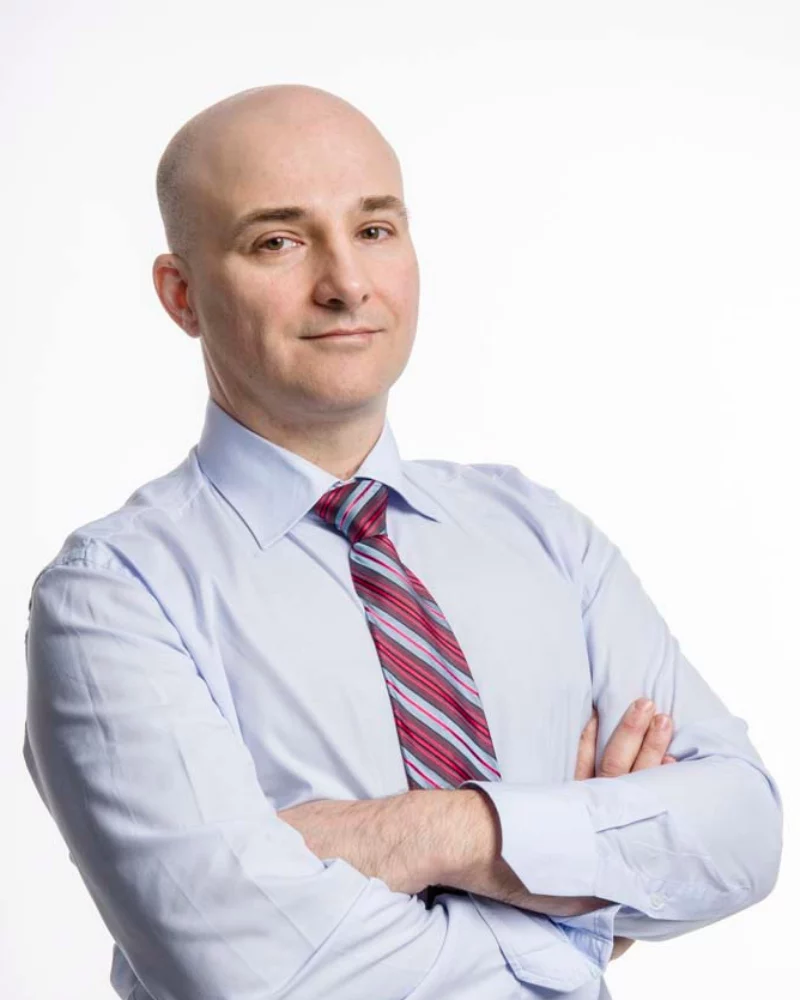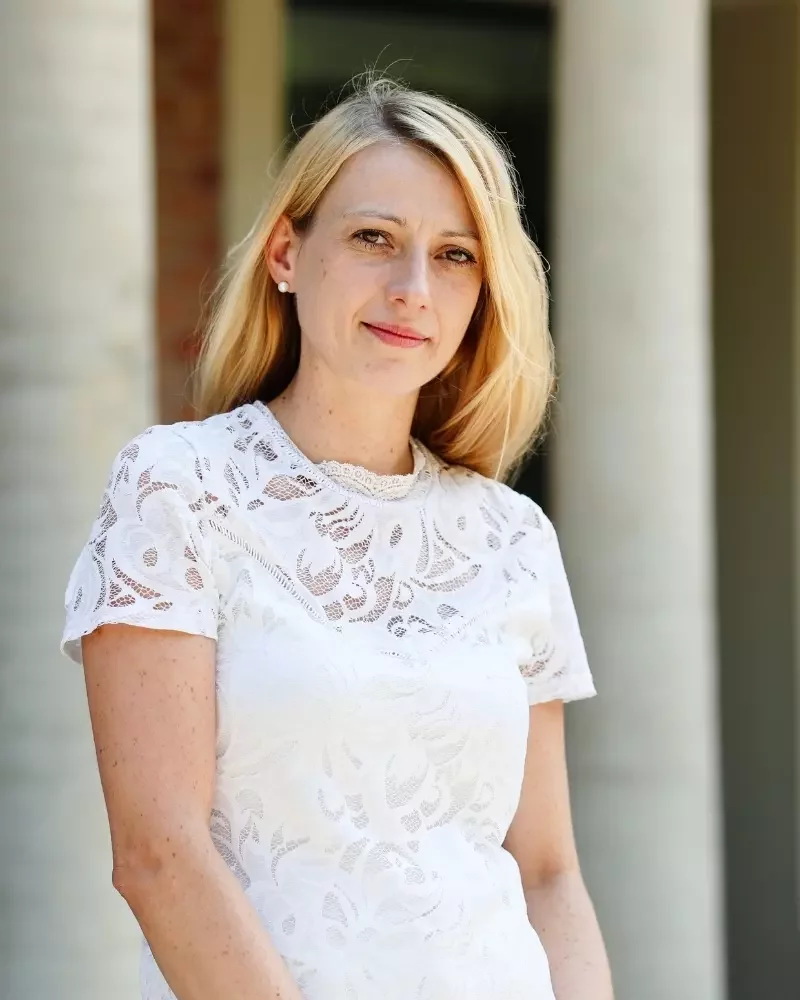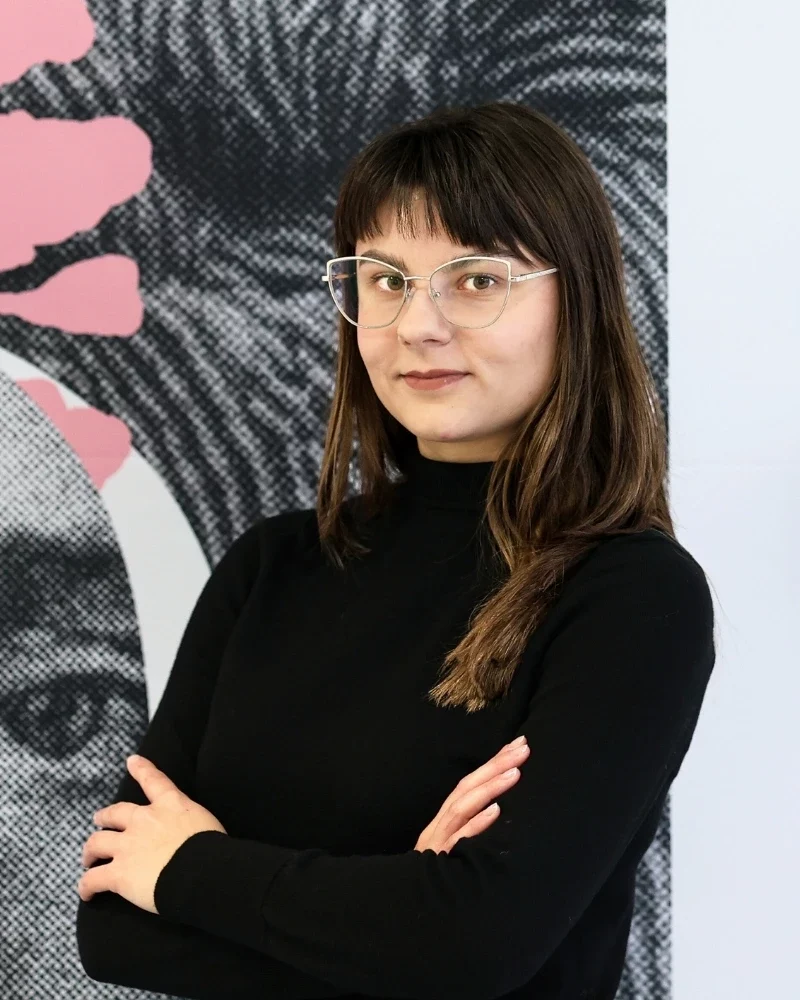Bioengineering Research Group
The Bioengineering Research Group conducts interdisciplinary research in the fields of life sciences and nanotechnology. Our expertise includes biochemistry, chemical biology, genetic engineering, immunology, and selected areas of microbiology.
We offer a wide range of services, including testing the biological activity of various substances, producing monoclonal antibodies, biofunctionalization of nanomaterials, designing diagnostic tests, cell culture, and more. Our laboratories are equipped for analyzing interactions between proteins, proteins and DNA, ligands, and peptides. We use specialized instrumentation to measure biological activity and kinetic parameters in a wide range—from pM to mM.
We also run a cell culture laboratory, which focuses on establishing cell lines, selecting them, and optimizing technologies used in cell culture. The lab meets the highest standards required for culturing animal cells and microorganisms under controlled conditions, as well as for producing biopharmaceuticals using recombinant DNA technology. To meet the challenges posed by modern biopharmaceutical production technologies, we integrate research in cell and tissue biology with innovative microorganism cultures. We also employ the latest advances in molecular biology, “omics” technologies, and synthetic biology.
Group members

Dr. Tomasz Lipiński
Tomasz studied biotechnology at the University of Wrocław. After graduating, he was employed at the Institute of Immunology and Experimental Therapy of the Polish Academy of Sciences, where he obtained his PhD. He completed an internship at the National Institute for Biological Standards and Control in Potters Bar, United Kingdom (funded by a NATO scholarship), and at the University of Alberta in Edmonton, Canada, where he later worked as a Research Associate from 2006 to 2010. After returning to Poland, Dr. Lipiński joined the Wrocław Research Center EIT+, where he worked on the interdisciplinary NAOMIS – BioSens project.
He has experience in immunochemistry, biochemistry, immunology, and microbiology. During his stay at the University of Alberta, he worked on an innovative glycoconjugate vaccine against Candida albicans, capable of targeted action on dendritic cells and possessing self-adjuvant properties.
His team conducts research through interdisciplinary projects at the intersection of life sciences and nanotechnology. The biological research focuses on analyzing the activity of natural compounds, signal transduction pathways, and designing functional conjugates. The nanotechnology research covers biofunctionalization of nanoparticles and surfaces for applications as drug or vaccine carriers, the development of innovative nanophosphors for bioimaging, and more.

Dr. Karolina Wójtowicz-Banyś
Karolina is a biotechnologist specializing in cell biology. She received her doctoral degree in biological sciences from the University of Wrocław, where she conducted research within the interdisciplinary BioTechNan project on the anticancer activity of biosurfactants. Her work focused primarily on live-cell analysis of cell membranes using advanced research methods. She also participated in other projects dedicated to innovative solutions in oncology and the cosmetics industry.
She completed her postdoctoral fellowship at the Institute of Immunology and Experimental Therapy of the Polish Academy of Sciences (PAN), analyzing the molecular basis of drug resistance in colorectal cancer. She also gained experience at renowned international institutions—including the Centre d’Immunologie de Marseille-Luminy (Marseille, France) and the Technical University of Munich (Germany)—working on highly interdisciplinary projects.

Dr. Michał Zalas
Michał studied biotechnology at the Jan Długosz University in Częstochowa. He then pursued doctoral studies at the Ludwik Hirszfeld Institute of Immunology and Experimental Therapy of the Polish Academy of Sciences in Wrocław, where he obtained his PhD. During his doctoral work, he researched the mechanisms of neurodegenerative diseases and the development of antibodies capable of differentiating cancer cell lines.
He gained experience, among other places, at the company Mabion and by participating in research and development projects in the area of neurodegenerative diseases and the generation of preclinical antibodies for diagnostic applications.

Małgorzata Serafin-Matyjasek
Małgorzata is a biotechnologist with nearly ten years of laboratory experience in the field of protein bioengineering. She graduated from the University of Rzeszów, specializing in molecular biotechnology. She has extensive experience in both the production and purification of recombinant proteins from various expression systems, as well as in downstream processes—from purification to final polishing of biopharmaceuticals, including quality analysis within QC (Quality Control). She has participated in numerous research and development projects focused on developing innovative solutions in oncology and immunology.

Dominika Wilk
Dominika earned her master’s degree in biotechnology from the University of Wrocław, with a specialization in molecular biology. Her research focused on analyzing the complex interactions between melanoma cells and keratinocytes present in the tumor microenvironment. During her studies, she began working for a biotechnology company developing therapies and drugs based on DNA aptamers. For four years, she was involved in the selection and characterization of aptamers, gaining experience in the implementation of research and development projects.